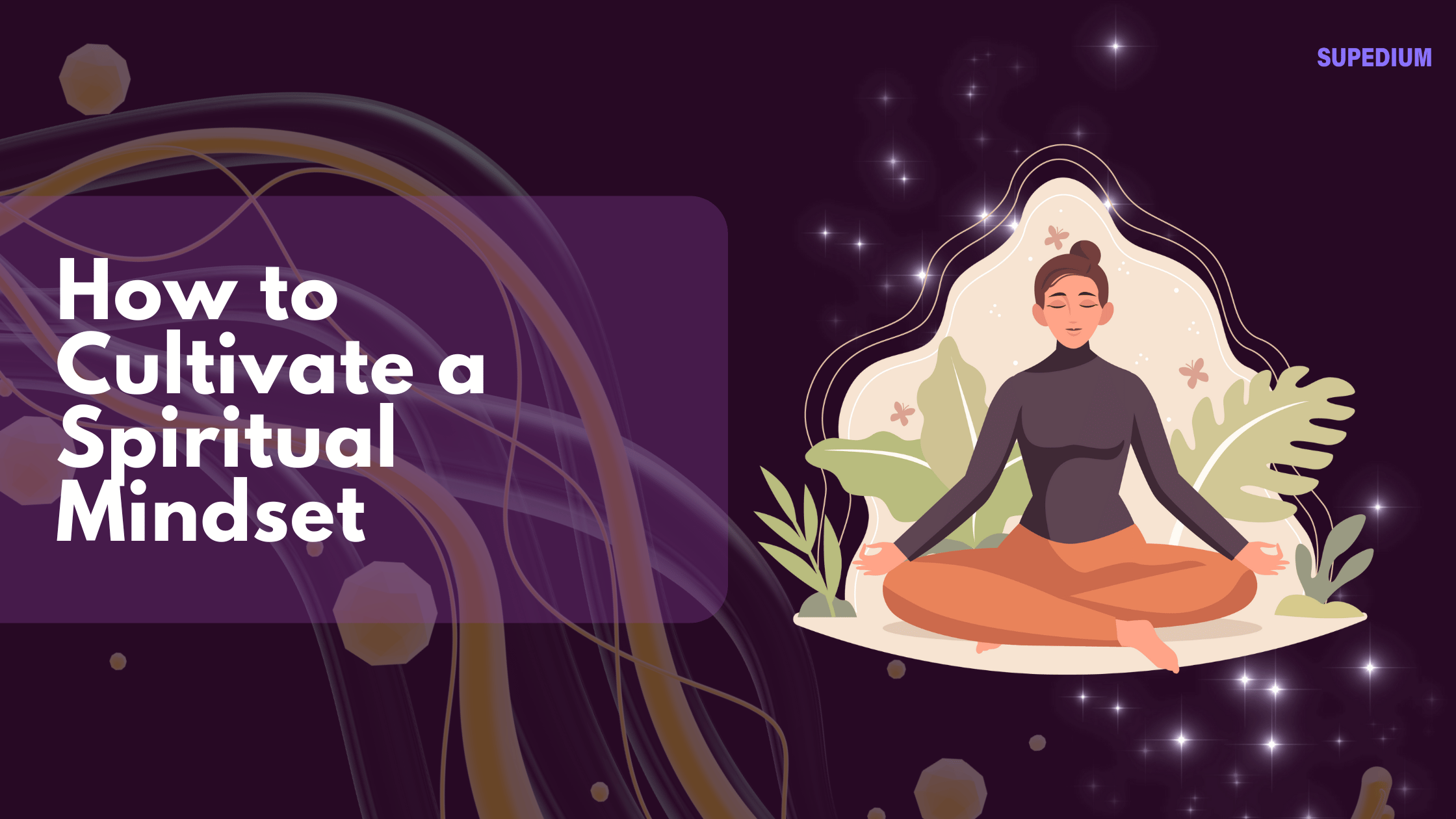Table of Contents
![]()
Introduction
In today’s fast-paced world, many individuals are seeking a deeper sense of purpose and connection. A spiritual mindset offers a pathway to enhanced well-being, improved resilience, and a greater sense of fulfillment. But what exactly does it mean to cultivate a spiritual mindset? This article will explore the essence of spirituality, outline practical steps to develop a spiritual mindset, and address common challenges along the way.
Understanding Spirituality
Distinction Between Spirituality and Religion
Spirituality is often misunderstood as synonymous with religion; however, it encompasses a broader spectrum of beliefs. While religion is typically organized around specific doctrines and practices, spirituality is more personal and subjective. It allows individuals to explore their beliefs, values, and experiences without the constraints of institutionalized structures.
Common Elements of Spirituality
Despite its varied expressions, spirituality generally includes three key elements:
- Connection to Self: Understanding one’s thoughts, emotions, and inner self.
- Connection to Others: Building meaningful relationships and fostering a sense of community.
- Connection to Nature/Universe: Recognizing one’s place in the larger context of life and the environment.
Steps to Cultivate a Spiritual Mindset
Self-Reflection
Self-reflection is a cornerstone of developing a spiritual mindset. By examining your thoughts and feelings, you can gain valuable insights into your values and beliefs.
- Journaling Practices:
- Daily Reflections: Set aside time each day to jot down your thoughts. This practice can help you identify patterns and recognize areas for growth.
- Gratitude Journaling: Focus on the positive aspects of your life by writing down things you are grateful for. This can enhance your overall sense of well-being.
- Meditation and Mindfulness:
- Techniques for Beginners: Start with simple breathing exercises or guided meditations. Apps like Headspace or Calm can be useful.
- Benefits of Regular Practice: Consistent meditation can reduce stress, enhance clarity, and promote emotional stability.
Cultivating Awareness
Developing a spiritual mindset requires an increased awareness of yourself and your surroundings.
- Living in the Present Moment:
- Techniques to Enhance Mindfulness: Practice grounding exercises, such as focusing on your senses or engaging in mindful eating.
- Importance of Awareness in Daily Activities: Integrating mindfulness into routine tasks can help you savor life’s moments and reduce distractions.
- Recognizing and Challenging Limiting Beliefs:
- Identifying Negative Thought Patterns: Pay attention to recurring negative thoughts and write them down.
- Strategies for Reframing Thoughts: Challenge these thoughts by considering alternative perspectives and affirmations.
Building Connection
A spiritual mindset thrives on meaningful connections.
- Fostering Relationships:
- Importance of Community and Support: Surround yourself with people who uplift and inspire you. Seek out groups that share your interests.
- Engaging in Meaningful Conversations: Deep discussions can lead to personal growth and a stronger sense of connection.
- Nature Connection:
- Spending Time Outdoors: Regular exposure to nature can rejuvenate your spirit. Consider hiking, gardening, or simply walking in a park.
- Practices to Deepen Connection with Nature: Engage in activities like mindfulness walks or eco-therapy to foster a deeper appreciation for the natural world.
Embracing Compassion and Kindness
Cultivating compassion is essential to a spiritual mindset.
- Practicing Empathy:
- Understanding Others’ Perspectives: Actively listen and seek to understand the experiences and feelings of others.
- Volunteering and Community Service: Giving back to your community can enrich your spiritual journey and foster a sense of interconnectedness.
- Self-Compassion:
- Techniques for Self-Kindness: Treat yourself with the same kindness you would offer a friend. Use affirmations and positive self-talk.
- Recognizing the Importance of Self-Care: Prioritize activities that nurture your body and mind, such as exercise, relaxation, and hobbies.
Engaging in Spiritual Practices
Spiritual practices can enhance your connection to yourself and the universe.
- Meditation and Prayer:
- Different Forms of Meditation: Explore various techniques, such as transcendental meditation, guided imagery, or mindfulness meditation.
- Personalizing Spiritual Practices: Find what resonates with you, whether it’s structured prayer, silent contemplation, or creative expression.
- Rituals and Traditions:
- Creating Personal Rituals: Develop routines that provide a sense of peace and connection, such as morning meditations or evening reflections.
- Exploring Existing Spiritual Traditions: Study different spiritual practices and consider incorporating elements that resonate with you.
Continuous Learning and Exploration
A spiritual mindset involves a commitment to lifelong learning.
- Reading Spiritual Literature:
- Recommended Books and Authors: Explore works by authors like Eckhart Tolle, Pema Chödrön, or Thich Nhat Hanh.
- Exploring Different Spiritual Philosophies: Investigate various spiritual traditions and philosophies to broaden your understanding.
- Attending Workshops and Retreats:
- Benefits of Immersive Experiences: Retreats can provide deep insights and foster a stronger connection to your spirituality.
- Finding the Right Community and Events: Look for local workshops or online courses that align with your interests.
Overcoming Challenges
Common Obstacles to Developing a Spiritual Mindset
Many people face challenges on their spiritual journey. Common obstacles include time constraints, skepticism, or self-doubt.
Strategies to Address Challenges
- Setting Realistic Goals: Start small and gradually incorporate spiritual practices into your daily routine.
- Seeking Support from Mentors or Groups: Join a spiritual community or seek guidance from someone experienced in spiritual practices.
Integrating Spirituality into Daily Life
Daily Practices for Spiritual Growth
- Morning Routines That Enhance Spirituality: Begin your day with intention. Consider meditation, stretching, or affirmations.
- Evening Reflections: Take time each evening to reflect on your day, acknowledge your experiences, and express gratitude.
Mindful Living
- Incorporating Spirituality into Work and Relationships: Bring your spiritual values into your interactions and decision-making processes.
- Creating a Spiritual Environment at Home: Designate a space for meditation or reflection filled with items that inspire peace, such as candles, crystals, or plants.
Conclusion
Cultivating a spiritual mindset is a personal journey that can lead to profound transformation and fulfillment. By engaging in self-reflection, building connections, and embracing compassion, you can enrich your life and enhance your sense of purpose. Remember, this journey is ongoing; it evolves as you grow. Take the first step today and explore the depths of your spirituality.
Share This





Be the first to comment